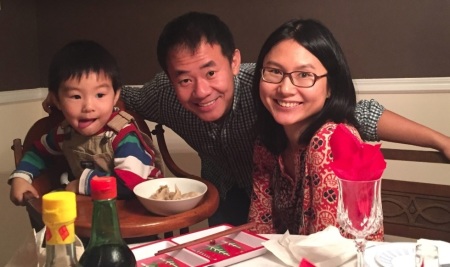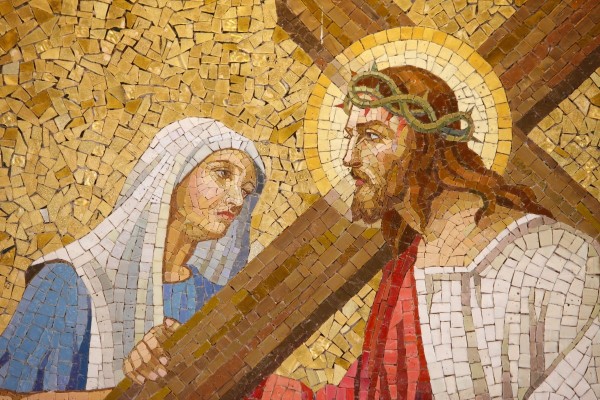Iran frees jailed American student after 3 years in exchange for imprisoned scientist

An American student who was imprisoned for three years in Iran on suspicion of espionage was released this past weekend as part of a prisoner exchange mediated by Switzerland.
Thirty-eight-year-old Xiyue Wang, a Chinese-born Princeton University graduate student and married father, arrived in Germany this past weekend for medical evaluations after he was freed from Evin Prison in exchange for the release of Iranian scientist Massoud Soleimani.
Wang, who came to the U.S. in 2001 and became a citizen in 2009, was jailed in August 2016 and sentenced to 10 years after accused of being a spy. Meanwhile, Soleimani, a stem cell researcher, was arrested in Chicago in 2018 and accused of violating trade sanctions. He has maintained his innocence.
“Our family is complete once again,” Wang’s wife Hua Qu said in a statement. “Our son Shaofan and I have waited three long years for this day and it’s hard to express in words how excited we are to be reunited with Xiyue. We are thankful to everyone who helped make this happen.
In a statement Saturday, President Donald Trump said that Wang will return to the United States.
“We thank our Swiss partners for their assistance in negotiating Mr. Wang’s release with Iran,” Trump said. “The highest priority of the United States is the safety and well-being of its citizens. Freeing Americans held captive is of vital importance to my Administration, and we will continue to work hard to bring home all our citizens wrongfully held captive overseas.”
Trump even stressed in a tweet that the U.S. “will not rest” until every wrongfully detained American in Iran is brought home. During his first three years in office, the Trump administration has secured releases of prisoners of conscience held in countries like North Korea and Turkey.
“Taken during the Obama Administration (despite $150 Billion gift), returned during the Trump Administration,” Trump tweeted. “Thank you to Iran on a very fair negotiation. See, we can make a deal together!”
CNN reports that a Trump administration official has said that Wang is said to be in “good health” and has displayed “very good humor” and “good spirits” since his release.
Princeton President Christopher Eisgruber stated that the school’s administration looks forward to welcoming Wang back on campus.
“The entire Princeton Community is overjoyed that Xiyue Wange can finally return home to his wife and young son,” he said in a statement.
The news of Wang’s release drew praise from prominent Princeton Law Professor Robert P. George, a former commissioner on the U.S. Commission for International Religious Freedom.
“Yes, President Trump and his administration deserve credit & thanks for negotiating Xiyue's release, as do the Swiss for their crucial help,” George, known for his conservative beliefs, wrote. “I have no problem saying that. As with all politicians, give them credit when they deserve it and criticism when that's what they deserve.”
Max Boot, a senior fellow for National Security Studies at the Council on Foreign Relations, pointed out that although an American’s release was secured, Iran got what it wanted out of the deal.
“Wonderful to see Xiyue Wang released,” Boot wrote in a tweet. “But Iran got what it wanted: the US released an Iranian scientist arrested for sanctions busting. The whole point of detaining US citizens is to get leverage for deals like this.”
Iranian Foreign Minister Javad Zarif wrote in a tweet Monday that the Islamic Republic is “fully ready for a comprehensive prisoner exchange.”
“The ball is in the US’ court,” he wrote.
The prisoner exchange comes about a day after the United Nations said that there appears to be video evidence show Iranian security forces “shooting to kill” protesters in the last few weeks of mass demonstrations.
In a statement, U.N. High Commissioner for Human Rights Michelle Bachelet said that at least 208 people were killed including 13 women and 12 children.
The U.N. further stated that reports that have not been verified suggest that the number of people killed during the protests is twice as high.
“Verified video footage indicates severe violence was used against protesters, including armed members of security forces shooting from the roof of a justice department building in one city, and from helicopters in another,” Bachelet said.
“We have also received footage which appears to show security forces shooting unarmed demonstrators from behind while they were running away, and shooting others directly in the face and vital organs — in other words shooting to kill.”
Bachelet said that “these are clear violations of international norms and standards on the use of force, and serious violations of human rights.”
“In such circumstances, with so many reported deaths, it is essential the authorities act with far greater transparency,” Bachelet stressed. “They must undertake prompt, independent and impartial investigations into all violations that have taken place, including the killing of protesters and reported deaths and ill-treatment in custody. And those responsible must be held accountable.”
The U.N. statement added that there appear to be multiple violations of the International Covenant on Civil and Political Rights, which Iran has agreed to uphold.
At least 7,000 people are said to have been arrested in 28 of Iran’s 31 provinces since mass protests broke out in mid-November.
Bachelet said she is “extremely concerned about their physical treatment, violations of their right to due process, and the possibility that a significant number of them may be charged with offenses that carry the death penalty, in addition to the conditions under which they are held.”
Follow Samuel Smith on Twitter: @IamSamSmith
or Facebook: SamuelSmithCP





















